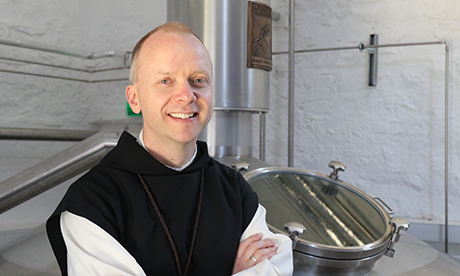The presbyterate of the Prelature of Trondheim met in the Brigittine convent of Tiller 22-24 October 2023. This talk was given by way of introduction.
Forgive me if I set off from a few personal remarks.
‘Three years have passed since I was consecrated bishop. When I arrived here, I had spent thirty years abroad.
Norway had became to me a foreign country. I knew the Norwegian Catholic Church by hearsay.
I had no personal experience of parish life. Not only had I never been a parish priest; I’d never even been part of an ordinary parish.
I had been formed in university chaplaincies and in religious life. I was minded to proceed cautiously.
I first wanted to get to know people and places in the prelature, above all you, dear priests, my closest collaborators.
I had heard of abbots going on visitation with the visitation card already written before departure, sure of their analysis based on first principles. I did not want to follow such a method.
Trondheim had been without its own bishop for eleven years. That a brand new one should charge ahead on the basis of instinct seemed to me unproductive.
In addition we were right in the middle of Covid lockdowns. It wasn’t a time to propose radical initiatives.
The three years that have passed have been good ones for me. After a few months I noticed I no longer broke out in a spontaneous cold sweat when I entered the bishop’s office. It was a sign I was slowly settling in.
I have been surrounded by great good will. I am often moved by people’s generous fidelity, by the will to build the Church up together, to do ‘something beautiful for God’ as Mother Teresa said.
Our communities may be vulnerable, small, but they are marked by evangelical authenticity, by service and prayer and, when needed, by sacrifice.
That is in no small measure thanks to you, dear priests. You do precious, fruitful work. People really appreciate you. I really appreciate you! Thank you for the service you perform, for the testimony you give.
When I got here, major projects were looming. The nuns on Tautra were extending. The monks at Munkeby were preparing to build their monastery.
The basement beneath the cathedral lay formless and void, like the chaos on the first day of creation. Much in the curia needed to be refounded.
We have come a long way, thank God.
Further, the church in Molde is equipped with a new roof. Even the Yellow House in Ålesund is ready.
For a prelature like ours, with few resources, there is a limit to how much can be done at once. But we now have a certain freedom of movement for creative work. That is what I wish to speak of.
Let me begin by say something self-evident: the Catholic Church in Norway has changed a great deal in the past thirty years. This fact invites us to new self-understanding. It calls us to new forms of enterprise.
From the mid-19th century until recently, the Catholic Church in Norway saw itself chiefly as a chaplaincy for migrants and a few converts.
It rather appeared, if I may be irreverent, as a fridge designed for the preservation of exotic fruit. This model has done well, but is no longer sufficient.
There are, as I see it, two reasons for this.
First, Norway has since the late 1980s become multi-cultural. The number of Catholics has increased, making our Catholic population a vocal, considerable part of society. We are no longer as marginal as we were.
Secondly, the cultural climate has changed. A Christian reference used to be natural in public discourse. That is so no more.
An increasing part of the population considers the Church, the churches, as an irrelevance.
We cannot allow ourselves, in these conditions, to put our light under a bushel.
We cannot presume that the memory of Christian hope, Christian values, a Christian understanding of man will be upheld by others.
We must get on with it.
In the light of these twin, indissociable factors, it seems essential that the Catholic Church in Norway should assume an evangelising, missionary character.
It is not a matter of being blusteringly triumphalist — that is counterproductive.
It is a matter of ensuring that Jesus Christ remains credibly represented in our country, that his name is heard. The harvest is plentiful, the labourers few. That is how it was in the beginning, too (Mt 9.37).
We must find a balance between excessive ambition and discouragement.
Above all we must remember that the Church is the Lord’s, that he has a plan for it both at the large, global level and at the small, local level.
We must let ourselves be used as tools in his hands so that we, by word and example, may invite others into sustaining fellowship.
I want to point toward three especially important areas: Continue reading
- Erik Varden is a monk and bishop, born in Norway in 1974. In 2002, after ten years at the University of Cambridge, he joined Mount Saint Bernard Abbey in Charnwood Forest. Pope Francis named him bishop of Trondheim in 2019.
News category: Analysis and Comment.




